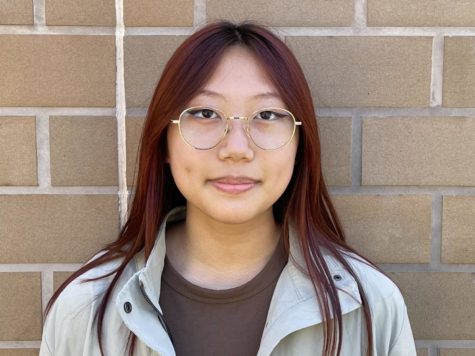Dougherty Valley High School considers placing a limitation on the amount of weighted courses students can take
Many Dougherty Valley High School students feel the pressure of taking more weighted classes then they can handle.
December 11, 2021
On Nov. 5th, Dougherty Valley High School’s principal Evan Powell sent out a survey to parents and students asking for their opinions about limiting the number of Advanced Placement (AP) and honors classes a student can take.
In the survey, students were asked about a wide variety of topics, including how many weighted courses they are taking inside and outside of school, which teachers they prefer and why, the average amount of sleep they get each night, how many weighted courses they dropped this year, and if they would still take weighted classes without a weighted GPA.
Powell believes that limiting the amount of weighted classes students can take would be a step in the right direction in regard to the goal of reducing stress on students.
“Last spring, our PTSA meeting held Dougherty Discussions [where a panel of parents and students address topics they find concerning] in which students had expressed [facing] a lot of stress. Many stated [that] during registration time, one of the first questions that comes [up] is “How many AP’s are you taking? … And at the beginning of this year, in our school site council meeting, our student and parent representatives expressed a lot of concern about [the] lack of sleep [and the] amount of work in weighted courses. And we just need to do something,” Powell expressed.
Although Dougherty has been competitive since its founding, the number of AP classes students are taking has increased rapidly in recent years.
“We’ve ordered 4317 AP exams for Dougherty [this year]. We’ve gone up 1400 since May of 2018,” Powell explains.
With this proposal, Powell wants to address mental health, which is a widespread problem throughout the student body due to the constant pressure regarding academics.
An anonymous AP STEM class teacher at Dougherty corroborates that the main reasons students take weighted classes is due to “peer pressure and college admissions.”
Powell explains that this was one of the main reasons the Wellness Center at Dougherty opened.
“We’ve had well over 300 students come in [to the Wellness Center] during class time. That does not include before school, brunch, lunch, or after school. We know that a number of teachers, at least half, are implementing some sort of check in or break in the middle of the class period. Students have been reporting [that] they really like it. We’re getting feedback from students and staff on what’s working,” he says.
Catherine Perez, the Wellness Center Counselor at Dougherty, further elaborated on Mr. Powell’s concerns about mental health.
“[I always ask students if they] think [they] can manage this workload throughout the whole year and still sustain their healthy emotional well being. Although it differs with [each] student, I think once students are involved in over three [weighted courses], that’s where it gets really intense,” Perez says.
Some students believe that limiting the amount of weighted classes they take would prevent them from reaching their full academic potential and lower their chance of getting admitted into more colleges.
Chelsea Hom, a sophomore at Dougherty Valley, says, “I can see valid reasons as to why they would want to restrict the AP course load, but I think giving us more options might be better.”
Powell shares his insight about such claims: “Colleges want students who can communicate, collaborate, [and] be self-sufficient. [They want someone] who [has] taken on a challenging workload, [but] that does not mean a stressed workload. Students can still enjoy their high school experience and challenge themselves at the same time.”
Rajni Nijjer, an academic counselor at Dougherty Valley, clarifies how this restriction would not adversely affect a student’s college application since colleges would already be aware of the limitation.
“Every time a senior applies to college, we submit a school profile to them, so they see what is available to students at that school. If [the policy regarding limitations on AP classes] were to change, that would be something we add in [our] school profile. Colleges know that this is not the students ‘fault,’ and [that] this is a limit at [our] school. [They want to see that] you’re taking advantage of what’s given to you,” Nijjer explains.
Lanz Wong, a freshman at Dougherty Valley, agrees that limiting AP classes could have some benefits.
“I feel students would be less stressed because the average GPA at the school will go down. On top of this, I think there is a lot of parental pressure [on students], so by limiting the amount of [weighted] classes, we would face less pressure,” Wong states.
However, other students are on the flip side of this, as they believe that the limitation on weighted courses would be ineffective.
Hom corroborates, “Students are going to find a way around this, like taking college level classes online or at a local community college.”
This was a factor that was considered when discussing the potential implementation of this limitation.
“We can’t stop students [from] taking non-district courses. But, what we are trying to do is reassure students that it’s okay to slow down a little bit and have a bit more of a balance,” Nijjer explains.
An anonymous AP STEM class teacher at Dougherty Valley shares their view on how the student body would react to such a change.
“I think there would definitely be a population that would freak out and think it’s not fair. But, there would be some students that would be relieved because they’re doing all they can do and [this limitation will remove the] pressure to do more,” they state.
Various opinions concerning this matter exist among students, parents, and faculty. On January 18th, Dougherty Valley will present the survey results at a PTSA meeting that will also be broadcasted live via a livestream link sent out on the Dvhigh.net website.
“You’re only a teenager once, and if you spend your whole time doing one thing, you’re missing out on so many other life learning opportunities. It’s important that students truly find a balance,” Powell advised Dougherty students.







